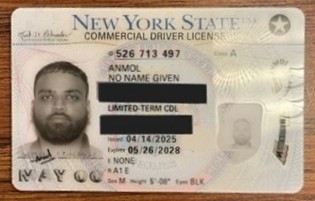Transferable Tax Credits Studied
The Oklahoma Legislature granted $27 million in tax credits to create Great Plains Airlines in Tulsa, with the promise that it would link Oklahoma to the east and west coasts with direct flights. The company sold its tax credits and used the proceeds to buy the bankrupt Missouri-based Ozark Airlines which had two 32-seat Fairchild Dornier 328 jets. Great Plains Air went bankrupt in 2004 after three years of limited operations, and never fulfilled the goal of the direct flights.
Rocketplane Holding received $18 million in state tax credits for its proposal to send tourists into space from the "Oklahoma Spaceport" created at Burns Flat. They turned their tax credits into cash, but the space plane was never built. The company closed their Oklahoma office earlier this year and is not expected to return.
Quartz Mountain Aerospace, received $32 million through Oklahoma's rural venture capital tax credit program with the promise to build 415 pilot training planes. The company bought out Luscombe Aircraft and proposed to build a four-seat, single-engine airplane based on the Luscombe Model 11A, introduced in 1946. Production began, but the company closed their plant in Altus before the first plane was delivered.
House Bill 1097, by state Rep. David Dank (R-Oklahoma City) and Sen. Randy Brogdon (R-Owasso), passed the Legislature earlier this year. The legislation, which established a Task Force which began work in September, is charged to conduct a study regarding all tax credits that are transferable to any person or entity other than the entity to whom or to which the credits are initially made available. The study includes the justification for the enactment of transferable tax credits, the economic impact related to the utilization of transferable tax credits, and an analysis of the utilization of the credits by tax credit purchasers.
Tony Mastin of the Oklahoma Tax Commission presented information to the task force which reveals that the state has approved transferable tax credits involving nine different industries. In addition to aviation and space ventures, some other areas include the coal industry, manufacturers of wind turbines, and builders of energy efficient homes. In 2007, the Tax Commission approved over $42 million in transferable tax credits.
Rep. Dank says that the primary tax credits being studied are given to one company, but that company typically sells or transfers the credits to another entity. At the kickoff of the study, Dank noted that the $18 million in tax credits for space transportation vehicle providers issued to Rocketplane Holding, were sold for $15 million. Dank noted that the buyer, Bank of Oklahoma, made $3 million on the deal, while Rocketplane received $15 million in cash. And the taxpayers are out $18 million in lost tax revenue.
Unlike other tax credit programs in which a company is allowed to use the tax credits to offset its tax liabilities once the company succeeds and makes a profit, the transferable credits can be sold, usually at a discount, allowing the buyer to offset their tax obligations. In the RocketPlane example, the buyer pays $18 million in state taxes, at a cost of only $15 million and the seller pockets the money, supposedly to build their business and deliver on their promised mission.
The tax credits for Quartz Mountain Aerospace were different those granted to Great Plains Airline and for Rocketplane. Quartz Mountain Aerospace was the beneficiary of $32 million, and the venture capital group received the tax credits which some report were double the cash sent to the aircraft company.
In addition to the state tax loss on the aviation projects, millions of dollars in incentives provided by local governments hoping to bring jobs to their communities were lost. The city of Tulsa lost millions in the Great Plains Airline fiasco. The city of Altus had stock in Quartz Mountain Aerospace and when the company closed operations, it reportedly owed the city at least $160,000 in utility bills.
Sen. Mike Mazzei (R-Tulsa), and Rep. Jeff Hickman (R-Dacoma) are co-chairmen of the task force. Mazzei previously headed an effort that explored eliminating tax breaks that cannot be justified by the amount of economic activity they generate.
The task force is charged to complete its work by the end of the year and provide recommendations in time for possible action in the next legislative session.










Latest Commentary
Thursday 30th of October 2025
Thursday 30th of October 2025
Thursday 30th of October 2025
Thursday 30th of October 2025
Thursday 30th of October 2025
Thursday 30th of October 2025
Thursday 30th of October 2025
Thursday 30th of October 2025
Thursday 30th of October 2025